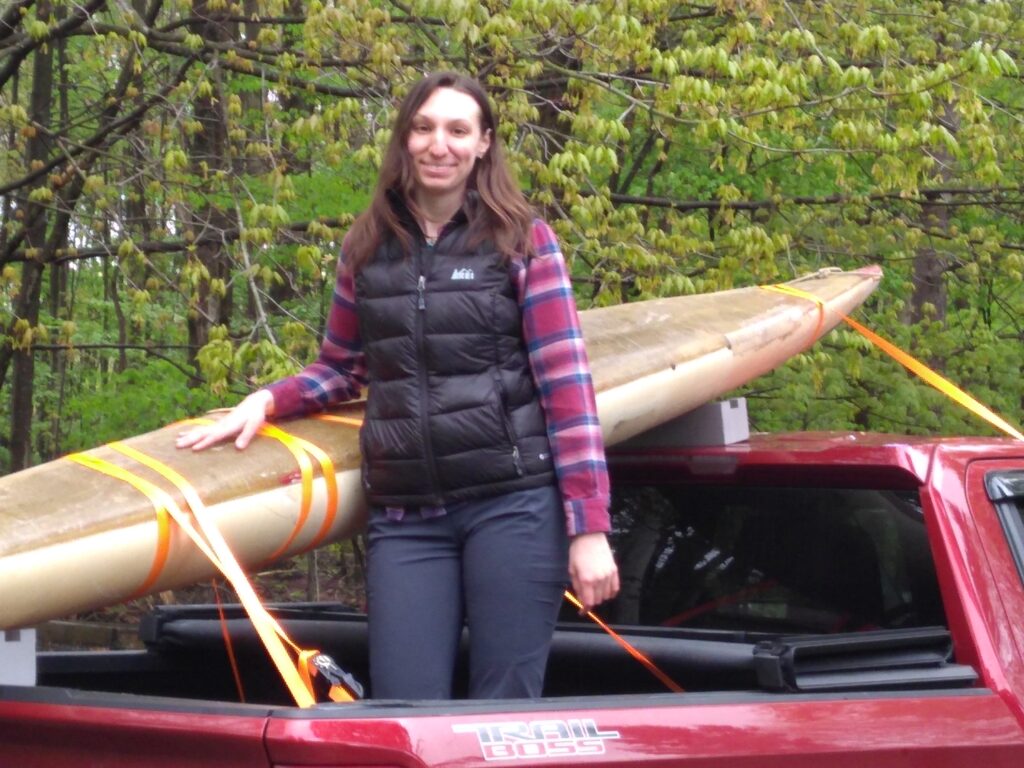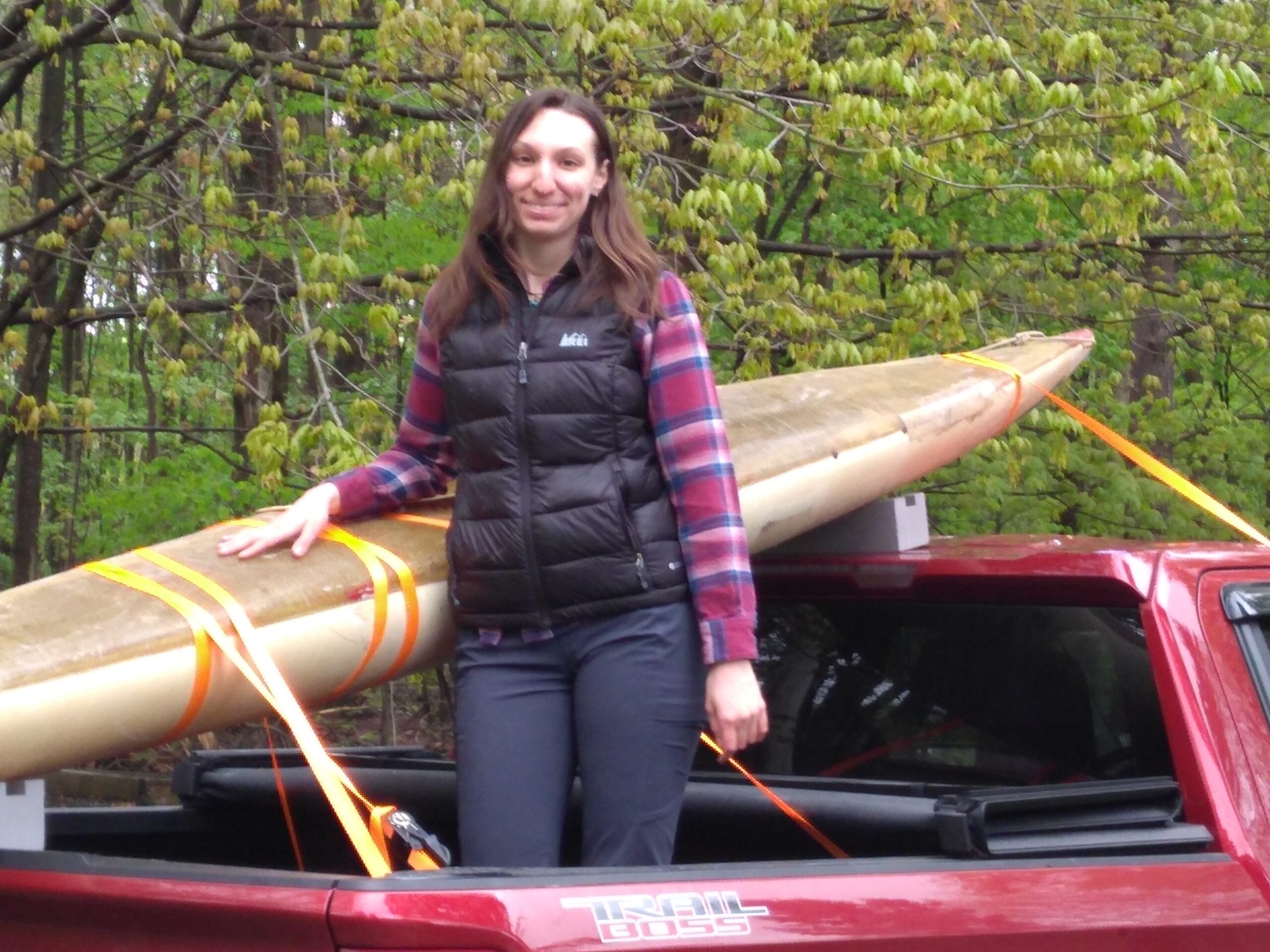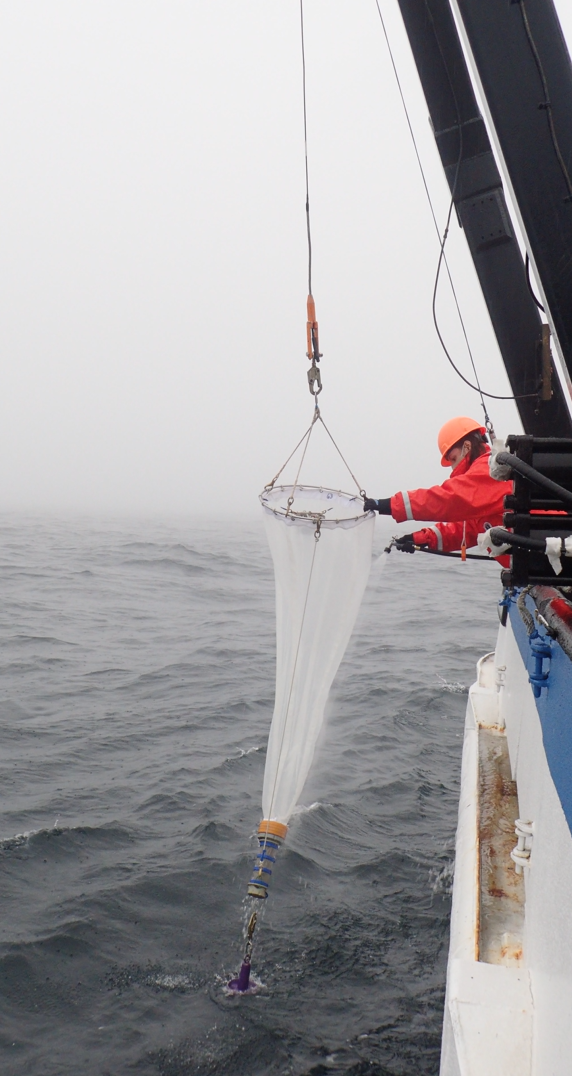
When Alexandrea Rice was studying in the classrooms of Carr Hall, she never envisioned herself voyaging on a research vessel on the wind-whipped Great Lakes during the month of April when the weather can be fatefully fickle.
But that’s exactly what the 2017 graduate of Allegheny College found herself doing this year.

Alex Rice, Allegheny College Class of 2017, just completed a Great Lakes research voyage.
“Being on the Great Lakes has indeed been quite an adventure,” said Rice after she disembarked from the ship in late April. “My expertise and interest is in soil nutrient cycling, so I had always envisioned myself (working) in a forest.”
Rice’s recent experience aboard the ship happened only because she has diligently gained deep and varied experience as an environmental researcher, she said. That includes her time as an undergraduate forest research assistant in Allegheny’s Department of Environmental Science and Sustainability, where she conducted her Senior Comprehensive Project on forest soils.
Rice was involved in multiple forest ecology studies when conducting her master’s degree research at internationally known research forests in New Hampshire. She also recently worked for the U.S. Geological Survey to develop soil conservation protocols.
“So even though I did not picture myself on this vessel during my days studying at Allegheny, I am not surprised that this experience is a part of my journey in becoming an ecologist,” said Rice, who works for Cornell University as a temporary service technician. She will start her Ph.D. studies at the University of Massachusetts Amherst in the Geosciences Department in June 2021.
So, what is the link between measuring soil chemistry in forests and collecting microscopic sea creatures while aboard a research vessel on the Great Lakes?
“Despite the seemingly unrelated nature of these studies and ecosystems, there are clear commonalities,” said Richard D. Bowden, Allegheny professor of environmental science and sustainability. “Environmental research brings the inspiration of beautiful field sites, such as forests or lakes, but also requires perseverance during less-than-pleasant field conditions — mosquitoes in the forest and cold weather aboard a ship rolling in six-foot waves,” Bowden said. “Despite challenging field conditions, a researcher still needs to be attentive to detail and protocol, lest research results become compromised.”

The Lake Guardian in dock in Milwaukee
During Rice’s nearly month-long voyage, she traveled on all five Great Lakes aboard the Lake Guardian, the largest Great Lakes research vessel owned and operated by the U.S. Environmental Protection Agency for long-term water-quality monitoring.
She and her shipmates collected zooplankton samples in nets that were deployed to various depths. “Zooplankton are identified and measured for biomass estimates which are important for sustaining healthy fish populations,” Rice explained. “Identifying the zooplankton is also important for monitoring invasive species in each lake,” she said.
The crew also collected water from various depths in all the lakes. These water samples were then filtered, and chlorophyll was extracted and analyzed for each sample. “Chlorophyll measurements provide insight to lake productivity and how that changes with depth,” said Rice, who was an environmental science and sustainability major and a geology minor at Allegheny.
The voyage started April 1 in Milwaukee and ended April 23, also in Milwaukee. “We sampled all five Great Lakes in the order of Michigan, Huron, Erie, Ontario, and lastly Superior. The shortest time we spent sampling a lake was around 21 hours on Lake Ontario because it only had eight sampling stations. The longest was Lake Superior, which took around seven full days to sample with 19 sampling stations,” Rice said.
Rice was one of the four biological scientists who were among 11 total scientists on the Lake Guardian. “As a biological scientist, it was our duty to collect zooplankton samples via fine mesh net tows at each station,” she explained. Rice worked the day shift, which started at 4 a.m. and ended at 4 p.m. each day during the survey.
Rice said the most harrowing moment during the cruise came on the second day as they were sampling. “The seas were six to seven feet with occasional 10 footers. On a 180-foot boat, you start to get tossed around on four- to five-foot waves, so this particular day felt rough,” she said. “No one was anticipating seas that large, so no one had taken any seasickness medication. This resulted in the majority of the scientists and crew feeling subpar only one day into the cruise, starting the survey off on a shaky footing. Thankfully that was the only day that we encountered high seas while sampling.”

Alex Rice hauls in a sampling net on the Lake Guardian.
Rice said that her Allegheny experience has provided a strong baseline that she has built on throughout her career. “The well-rounded education in a variety of ecosystems provided me with the knowledge to draw from when facing new topics,” she said. “I also have found that the communication and critical thinking skills that were taught in both my major and minor have been the most useful when starting a new job.”
Since graduating from Allegheny in 2017, Rice has completed her master’s in forest ecology and management at the State University of New York College of Environmental Science and Forestry in Syracuse. She also has worked as a biological science technician with the U.S. Geological Survey in Henderson, Nevada.
In her Ph.D. work, Rice will be using stable isotopes to determine the source of nutrients for reforestation following tree harvest, she said. “This project will draw on knowledge and skills I learned from each experience up to this point in my career. I am looking forward to expanding our knowledge of where trees are deriving their nutrients once a site has been harvested. This will be important information for foresters in sustainable forestry,” said Rice.
Rice said she probably won’t be involved in sampling the Great Lakes again, but she has gained invaluable insights into research management and efforts needed to maintain long-term monitoring and experiments that enable scientists to protect the world’s natural resources.


